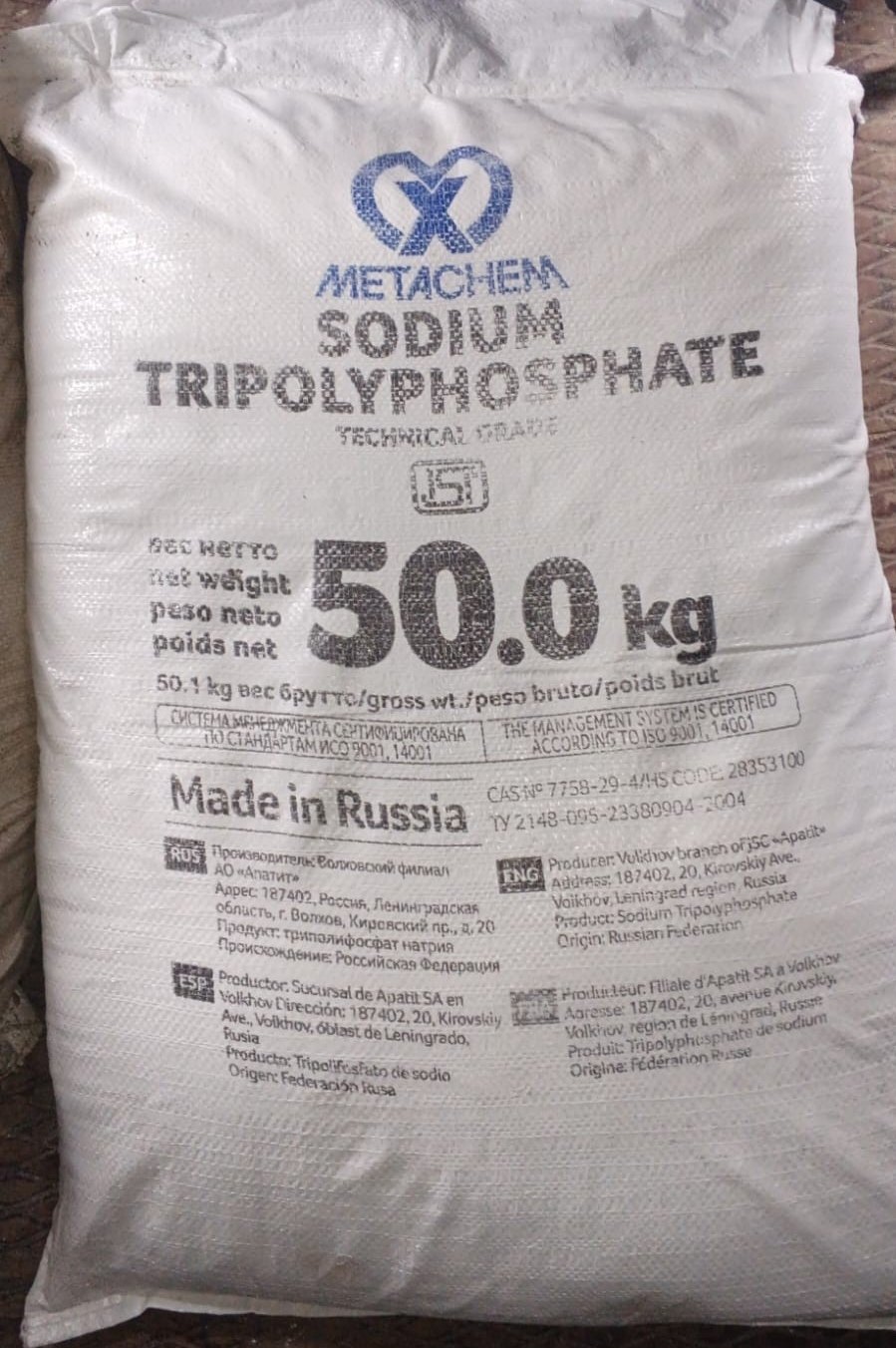
Sodium Tripolyphosphate STPP
Technical grade 99%
₹94.00
Sodium Tripolyphosphate (STPP) is a pentasodium triphosphate, is a white powder that is mildly alkaline with a pH of around 9-10. It is odorless, moderately soluble in water, and acts as a binder, stabilizer, and sequestrant in various food and industrial applications, such as dishwashing detergents and meat processing. Sodium Tripolyphosphate (STPP) a widely used inorganic compound (Na₅P₃O₁₀) with applications in detergents, food, and industrial processes, where it functions as a builder, water softener, emulsifier, and dispersant. It softens water by sequestering calcium and magnesium ions, enhances cleaning by helping detergents penetrate surfaces, and acts as a food preservative, stabilizing texture and preventing spoilage.
Physical Properties of Sodium Tripolyphosphate (STPP):
Appearance: White powder or granules.
Odor: Odorless.
pH: Mildly alkaline, with a pH range of approximately 9.0-10.0 for a 1% solution.
Solubility: Soluble in water, with solubility varying by concentration and temperature.
CAS No.: 7758-29-4
Chemical Properties of Sodium Tripolyphosphate (STPP):
Chemical Formula: Na₅P₃O₁₀
Molar Mass: 367.864 g/mol.
Function: It acts as a sequestrant, binder, and stabilizer.
Uses and Applications of Sodium tripolyphosphate (STPP):
Sodium tripolyphosphate (STPP) is a multi-purpose chemical used in detergents as a builder to soften water and enhance cleaning by sequestering metal ions, preventing dirt redeposition, and inhibiting corrosion. It's also found in the food industry to improve texture and act as a preservative, in water treatment for scale prevention, and in industries like ceramics, paper, and petroleum as a dispersant.
In the Detergent Industry:
Water Softening: STPP softens water by binding to calcium and magnesium ions, which are known to reduce detergent effectiveness.
Dirt Suspension: It helps prevent dirt from re-depositing on fabrics, improving overall cleaning performance and brightening colors.
Corrosion Inhibition: It forms a protective layer on metal parts, preventing rust and corrosion in washing machines.
Emulsification: STPP helps emulsify fats and oils, contributing to a better cleaning action.
In the Food Industry:
Moisture Retention: Used in seafood to help retain moisture, preserving succulence and preventing water loss during processing and freezing.
Texture and Preservation: Improves the texture and mouthfeel of processed foods and extends their shelf life.
In Other Industries:
Water Treatment: Acts as a scale and deposit inhibitor, protecting metal surfaces from corrosion.
Ceramics and Paints: Used as a dispersant to help distribute particles evenly in products like paints and ceramics.
Leather and Paper Manufacturing: Functions as a deflocculating agent, aiding in the manufacturing processes of these industries.
Industry: It is used in the ceramic industry and as a key component in detergents due to its water-softening and emulsifying properties.
Food: Functions as a food additive to enhance texture, maintain freshness, and improve water retention in products.
Hazards of Sodium Tripolyphosphate:
Eye contact: Causes serious eye irritation.
Skin contact: May cause irritation.
Inhalation: Breathing in dust may result in respiratory irritation.
Packaging: 50 Kg. Bag
MOQ: 50 Kg.
Estimated Lead Time: 1 day
"in stock"
